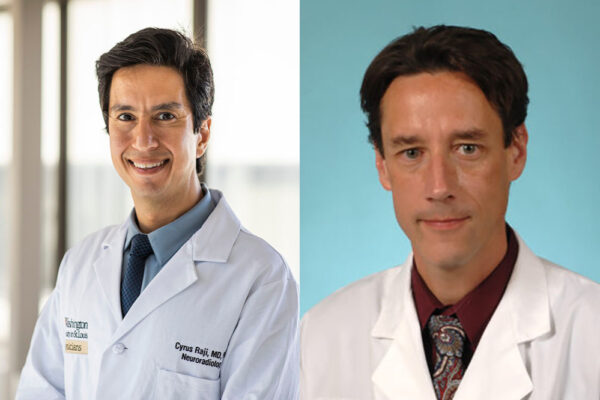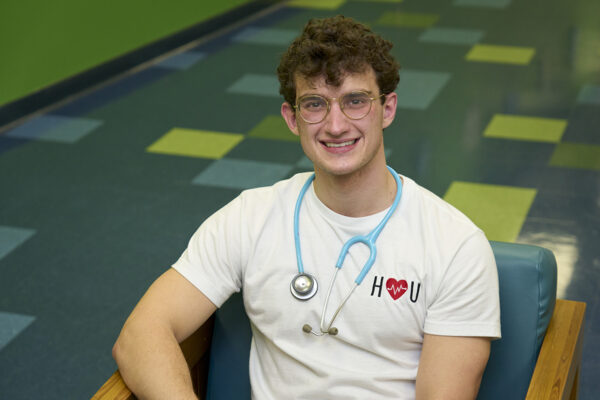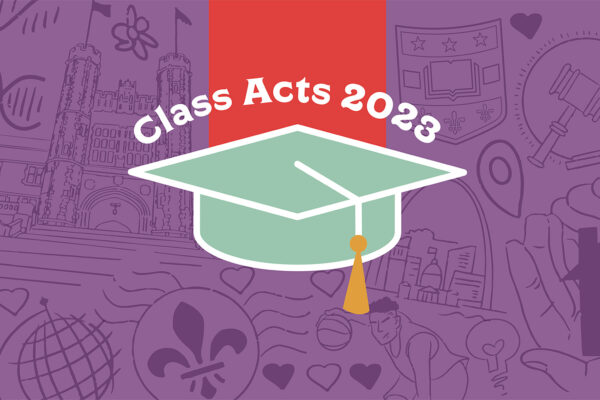As a kid, one of Alexandra Zdonczyk’s favorite activities was discovering small creatures in her backyard, and in streams and tidepools. She envisioned herself growing up and studying insects, birds or marine life. In high school, she became fascinated with human biology and imagined careers in medicine. Even so, Zdonczyk never saw herself as an eye doctor.
“I entered medical school not knowing about ophthalmology,” said Zdonczyk, who soon expects to earn a medical degree and a master’s in clinical investigation from Washington University School of Medicine in St. Louis. In July, Zdonczyk will begin her residency in ophthalmology at Barnes-Jewish Hospital. “I’ve never worn glasses. I had no personal perspective on how vision impairments can affect quality of life or stymie brain development and function, especially in kids.”
She stumbled upon ophthalmology by way of another passion: advocating for health equity. An associate dean alerted her to a research project examining health disparities among children with strabismus. Colloquially known as crossed eyes, uncorrected strabismus can cause irreversible vision damage and developmental problems leading to poor academic performance, physical disability, relationship struggles and reduced employment prospects.
Why are you interested in ophthalmology?
I enjoy the combination of ocular anatomy, performing surgeries and the one-on-one relationships developed during patient care. It’s exciting to have such a tangible effect on people’s lives through surgery. Being able to help preserve people’s vision can be so life-changing. For pediatric ophthalmology, you can alter the trajectory of a child’s life.
How can clinicians address health disparities as a part of patient care?
It’s impossible for health-care providers to get through a working day without encountering issues of access to care for their patients. It can be really frustrating when you have medical therapies that scientifically have been shown to help, but your hands are tied if your patient can’t afford or access the medicine. Or if they cannot come to follow-up appointments because they lack transportation or their job won’t let them take off for a few hours.
The research I worked on examining health disparities among pediatric patients who underwent surgeries to correct strabismus showed significant variations in follow-up care. If a child was having postsurgical issues and was not able to see a doctor, then the child ends up in the same place as where we started.
As a Latina, I also see many examples of health inequities among native Spanish speakers. A lot of providers don’t speak Spanish. Language barriers can have a major impact on health care. It’s important for people who are bilingual, like me, to go into the community, form relationships and develop trust, and help recruit and mentor students from all backgrounds to form a health care workforce representative of our patient population.
Why stay in St. Louis?
I love St. Louis. In addition to the wonderful mentors I’ve been grateful to learn from at WashU, I’ve formed lifelong friendships here. The combination of local and global influences, all within a 20-minute radius, is really fun.
But some of these neighborhoods historically were created because people were only allowed to live with others of their race or ethnicity. It’s a double-edged sword in which social structures have helped preserve the area’s amazing heritage, but it has also continued to perpetuate divisions, such as the Delmar Divide. St. Louis is a microcosm of the nation, but, here, I feel like I can make a positive impact on people’s lives.




